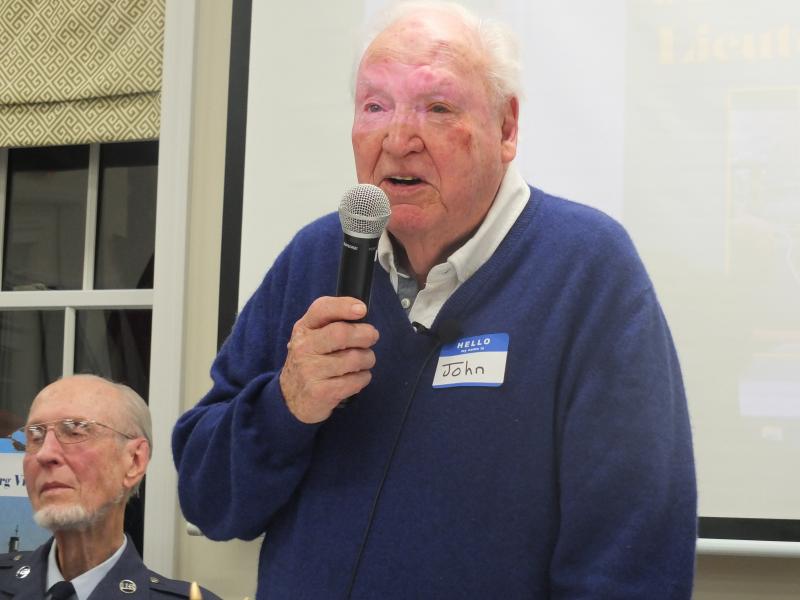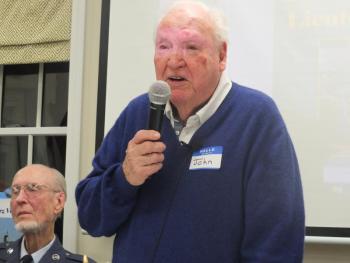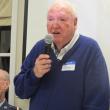World War II vet recalls experience in Pacific Theater during Rotary dinner
Marine Lieutenant John Druce told veterans and Rotarians Nov. 15, his World War II experience didn’t begin too smoothly. Druce, 96, told an audience of about 100 that in 1944, he was fresh out of Marine training in Quantico, Virginia. He was immediately sent to San Francisco and six days later he was assigned responsibility for 40 men aboard the SS Luxembourg Victory. Three weeks later, the freighter was missing.
“We were at Guadalcanal during an air raid. I was asked the next morning where the ship was, but I didn’t know,” Druce said. The lieutenant spent the rest of World War II looking for the missing freighter, but he didn’t know what happened until two decades later.
“I was reading an article about all the victory ships being returned to the state of Washington. They were being cut up for scrap,” he said. “It turns out the LV went through all the battles in the South Pacific. How it did it, I don’t know.”
Druce's 22-minute presentation recounted receiving the surrender of Japanese soldiers in China and witnessing one of the most famous military banners in history.When the 21-year-old arrived at Guadalcanal military base in the Solomon Islands, he saw a 40-foot by four-foot sign U.S. Pacific Naval Fleet Commander William Halsey Jr. left for arriving military personnel: “Kill Japs. Kill more Japs. And kill the God damn bastards,” Druce recalled the admiral’s famous words.
In August 1945, Druce and three other lieutenants were sent to China. They were assigned three tasks in the days following Japan’s surrender to Allied forces: Supervise the return of defeated Japanese soldiers home, prepare for the return of ally Chiang Kai-shek and his military forces to China, and ready Peking for the U.S. Marines First Division accepting the official transfer of power. When Druce first encountered Japanese soldiers, they immediately surrendered.
“I couldn’t believe my eyes. There was about 200,000 of them,” he said. “All of sudden they met us, bowed and surrendered. It was unbelievable after hearing how ferocious they were to see them act like this,” Druce said.
Druce credits Gen. Douglas MacArthur for creating a strong relationship between the U.S. and Japan – which has lasted 73 years – following World War II. “He made some mistakes in the Pacific, but he did a great job organizing Japan after the war. In fact, Japan is one of our best allies. I would say they are a better ally than England,” he said.
Druce is a Pennsylvania native. He moved to Boothbay Harbor in 1953.
Event Date
Address
United States























